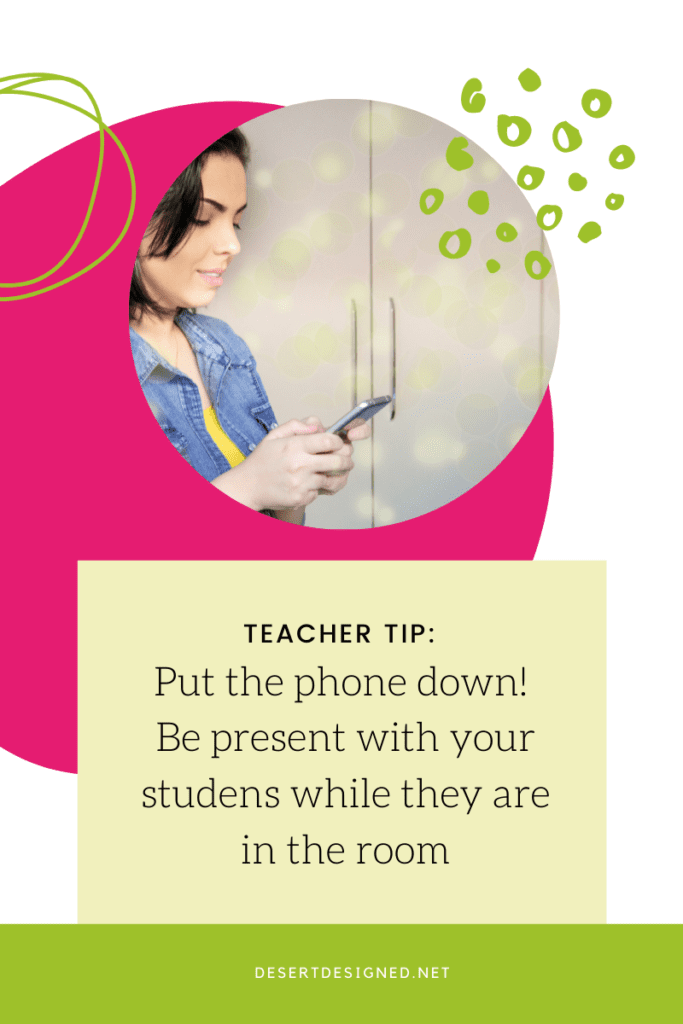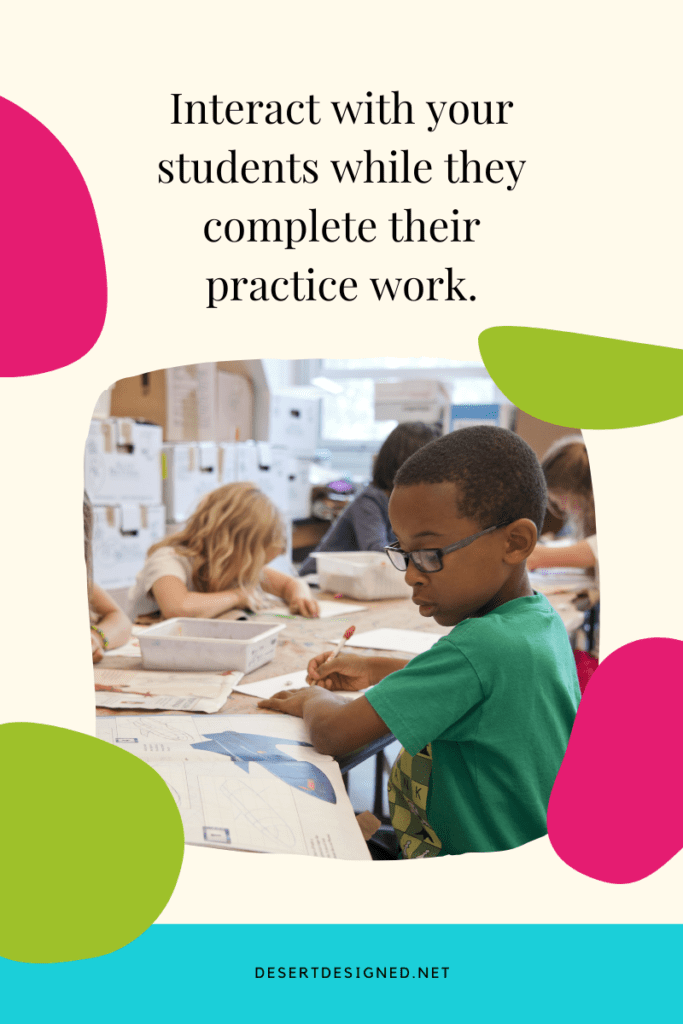How can we build relationship with students? Building relationships with anyone can be a challenge for some. It’s important to realize that building relationships with our students is essential for student success and a positive classroom environment.

Why is it Important to Build a Relationship?
One of the best ways to get students engaged (and loving school) is through the development of trust and positive relationships. Students need to feel safe at school, not just with their peers, but with their teacher as well. According to the CDC, students who feel connected in school
- Get better grades
- Have higher test scores
- Stay in school longer
- Attend school more regularly
For some teachers, fostering these connections comes naturally, yet for others, it can be a struggle.
How Can You Build Relationships?
Teachers can connect with students in a meaningful, positive, appropriate way to help build relationship with students using these easy tips:
Be Aware
Every day, greet each of your students at the door to your classroom. It is amazing how easy it can be to spot a student whose day is off to a rough start through a 2-second, “Good Morning.” One relationship building activity I do with my students is called “Smiles and Frowns”. I learned about this from Monte Syrie.
Every day, we take 5-10 minutes as a class to check in on how everyone is feeling. Each person in the room has to opportunity to share a smile, frown, or to “pass.” I always start and I try to rarely pass. I have noticed how this will build a relationship between the students and we all start to get to know one another in a safe way over time.
Some students will share deeply moving information. Others will talk every day about their dog. Some students will always pass. All of this is OK. It has brought a sense of understanding and empathy into my classroom that wasn’t there before I started the practice.
Be Proactive.
Anytime things don’t seem ‘quite right’ with one of your students, do something about it. Sometimes this is just by keeping an eye out for unusual behavior. At other times, it can be taking a moment to check in and see if there is anything the student needs to talk about. Don’t just ignore a student who is suddenly acting out and try to not jump to conclusions. Often, when I’m having a frustrating day myself, I can tend to be more reactive with the kids. Taking a moment to ask them what is going on rather than assuming negative behavior can lead to positive relationships. Your students will know that you desire to understand them.
Be Present

And I don’t mean just show up to work. We all have junk in our lives. That junk is not our students’ fault. Check your baggage at your classroom door and be with the kids more than just by being in the room. Even when times are tough from a loss, fight, car accident, worrying about bills, or any of the 500 other things we all have happening in life. I can guarantee you will walk away from a school day in much better shape if you let all that go and focus on your students while you are at school.
Participate
Take a moment to think about what you are doing once students get to work. Do you go to your desk to grade papers? Check your cell phone? Scroll Facebook? Check your email? If so, you need to think about your goals. Since you have a goal to improve relationships with students, you need to be intentional about your own behaviors in the classroom.
We have all fallen into these behaviors before. We get burned out, we feel overwhelmed, there are so many things pulling at our attention. Then, when a student comes to ask for your help, you are distracted. The student will feel this and apologize for bothering you, turn away, and you have just given the message that you aren’t here for them.
I don’t mean to sound harsh, but I have seen it more times than I care to admit. We don’t realize what this is doing to our effort to build a relationship with these students in the classroom.
If you want the students to feel you are truly there for them, participate with them. Be a part of what is happening in the classroom in a way that makes sense to the current task.

- During an assessment
- Walk around the room
- Help a student who gets stuck
- Encourage a distracted student to stay on task
- Give an encouraging word to a child who is frustrated
- During Practice Work
- Move around the room
- Check in on student understanding
- Work with a group or individual who is struggling
- Compliment students on positive behaviors
- During Centers
- Work with a small group
- Participate in one of the centers with students (preferably the most difficult one)
- During Free Time/Game Time/Fun Friday
- Play the game!
The above list is a great way to get started with being intentional about building positive relationships with students even while they are getting word done!
Learn More About your Students

By discovering more about your kids and their backgrounds, you will begin to understand where they are coming from. Knowing that Tommy’s brothers and sisters are in foster care, or that Ava’s mom is working two jobs helps us have a little more patience when they don’t turn in their math homework, or have a hard time focusing on a lesson about ancient Egyptians. You can learn about your students through conversations, or through parent surveys like this one.
Be Sincere
Kids can see through flattery and insincerity. Some students are easy to encourage while others can be downright difficult to like. For your more difficult students, notice things that are true.
What do I mean about “noticing”?
- “Wow, you are really fluent at your math facts!”
- “You clearly love Minecraft! Look at all those drawings you have done (while I was teaching math)” …might want to keep that last part to yourself.
- “Hey, you got a haircut.”
- “Thanks for being here today.”
Just taking the time to notice something about a student can make an impact. When you do this, students feel seen. They know that you know they exist. While this might seem silly, kids are sensitive creatures. They truly need to feel that they are important to you!
Jay over at Joyful Math makes some great suggestions in her blog post First Job Teaching Math: 3 Ways to Make it Memorable for Students. Make sure you read her section: Don’t Just Love Students, Show them You Love them!
Believe in Your Students
Your students WILL go on to do great things. Believe this. You are making a difference in their lives and want to see them be successful. If you believe in them, they will see that and begin to believe in themselves too!
Ultimately, the bottom line is that students will benefit by knowing that you care, you notice, and you believe that they will go on to do great things in life!



